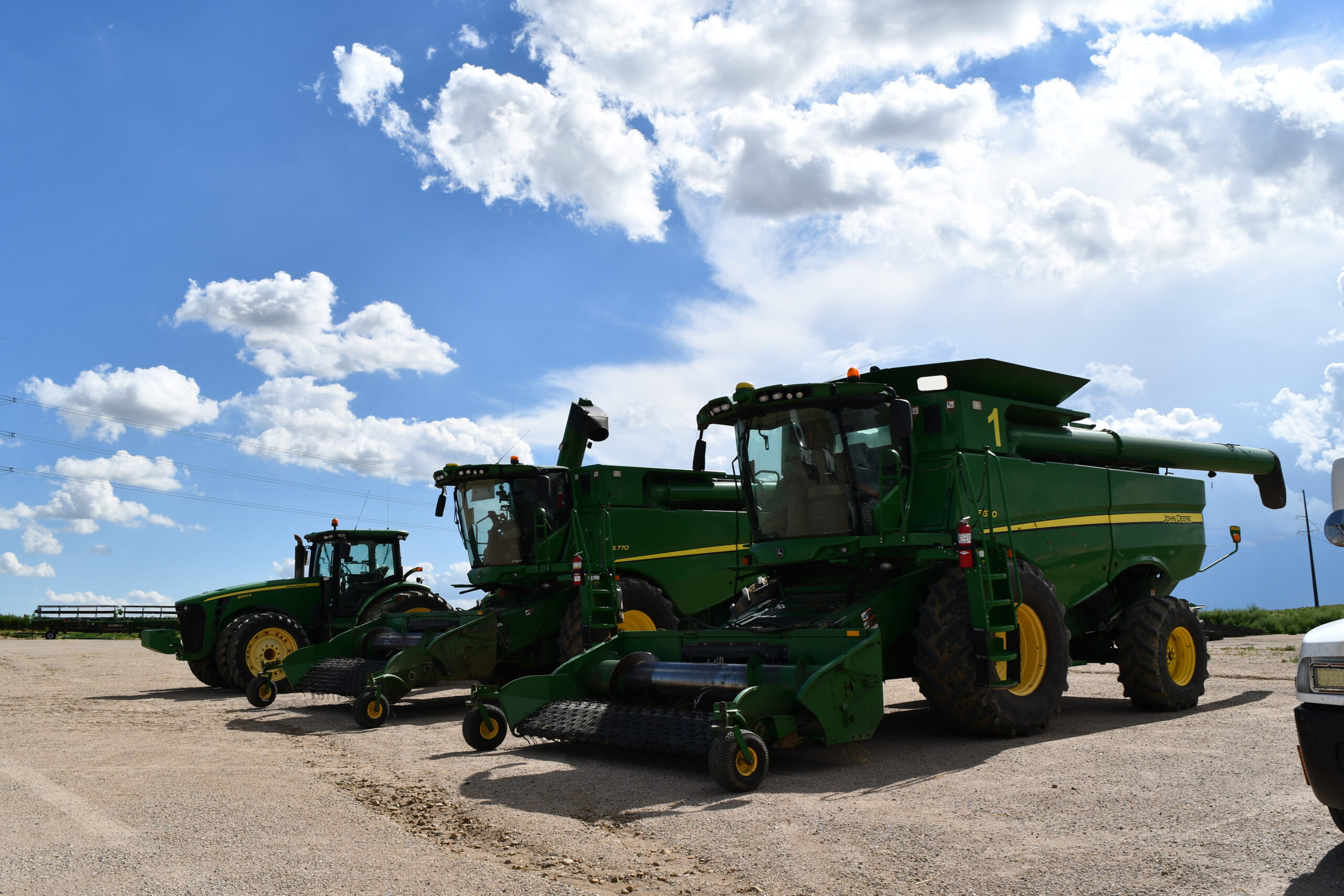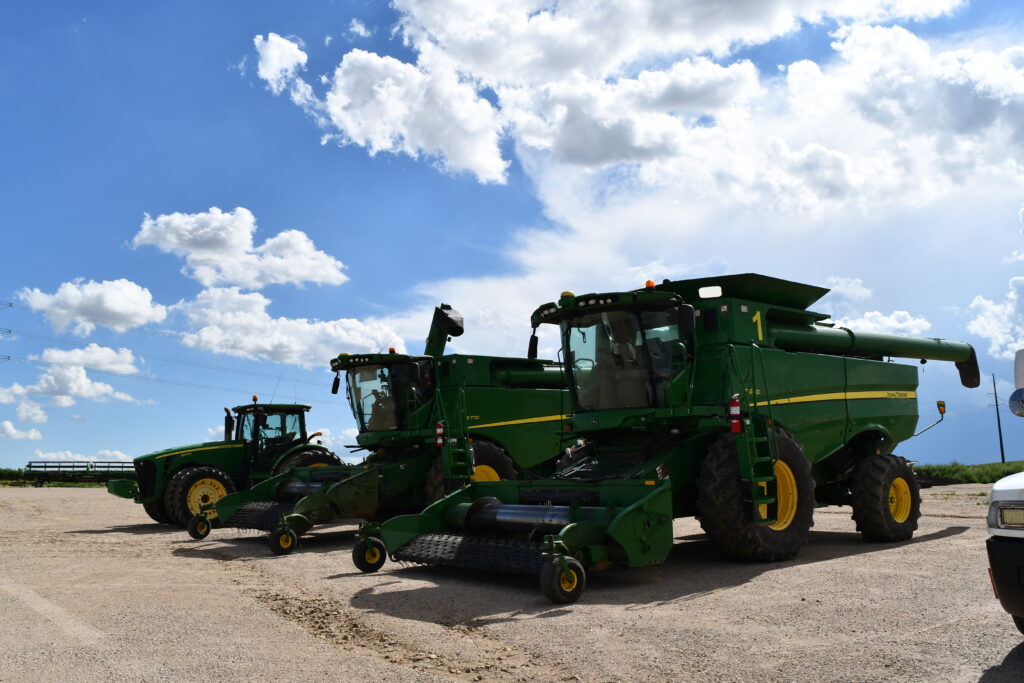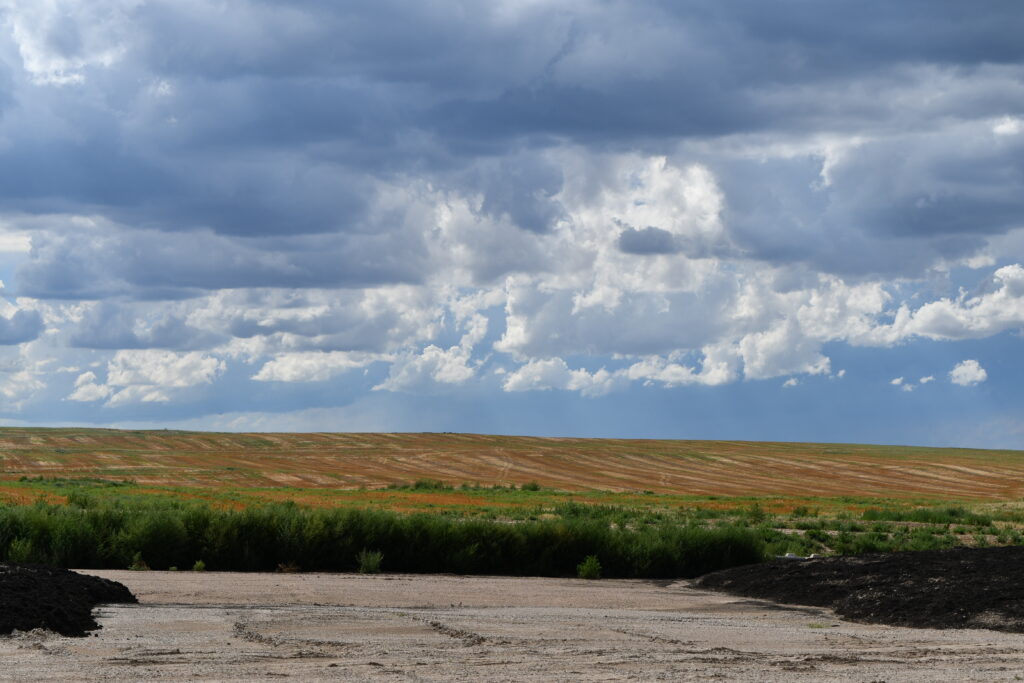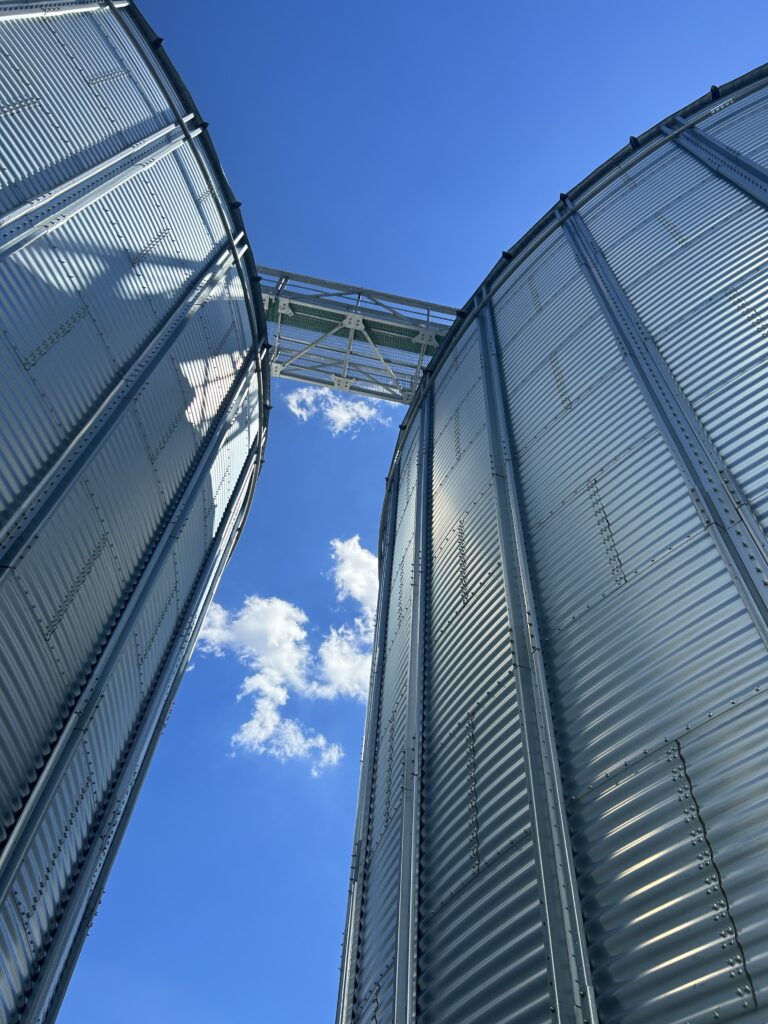
An Unprecedented Year at METROGRO Farm
An hour east of the Denver Metro area is where you’ll find our METROGRO Farm. This 80 square mile farm is the place that Metro Water Recovery sends biosolids for farm use. Crops like winter barley, milo, and wheat are grown each year.
Typically, by August, crops have been harvested. However, this summer is proving to be different; miles of planted wheat are still nestled in the fields, and heavy harvest machines idlily sit waiting for the weather to improve. To be harvested, wheat must be dry. Otherwise, an entire batch could be spoiled.

Record-Breaking Rain
With afternoon thunderstorms being a near-daily occurrence, the harvest is delayed. If you ask our summer interns, harvest contractors, or longtime employees like METROGRO Farm Administrator Jason Zimbleman they will describe this year’s season in a single word: Unprecedented.
Rain is usually celebrated, but when the annual rainfall happens in a matter of days, you get a year of challenges. In fact, this year shattered a 162-year record to become the wettest June on record, and the farm saw the 13” of annual rain in a 10-day period. Wheat does better with traditional hot summer days as it needs a period of heat-stress for an optimal quality crop. With afternoon storms, prolonged heat exposure has been in short supply.
According to coloradowheat.org, this summer is on track to become one of the top five latest wheat harvest completion years in recorded history. Many Colorado farmers are harvesting in August for the first time ever.
And the Challenges Continue
Beyond the crops, the unprecedented wet summer has offered additional challenges to the METROGRO Farm. With the farm’s 100 miles worth of interconnecting dirt and gravel roads, the rain has made maintenance of those roads a routine and constant issue. The farm can mine their own gravel to use solely on the property from the on-site gravel pit. With the routine truck deliveries of METROGRO Cake® (the class B biosolids created at Metro Water Recovery facilities made for agricultural use), it is especially important to avoid big issues.
In addition to wet…everything, another problem lies within a small insect that has caused issues for wheat fields. The Wheat Stem Sawfly is a relatively new problem in Colorado, first being reported in the state in 2010. The wasp-like pest feeds on the stems of the stalky wheat causing wheat heads to break below the level that a combine can harvest the head of the wheat. This insect alone can contribute to up to 20 percent of yield loss according to a report by Colorado State University. The farm has planted 6-row barley as a “trap crop” to combat the infestation in hopes that the wheat stem sawfly will focus there rather than on the wheat.

Resilience is Key
With such an unprecedented year of challenges, one thing that hasn’t changed is the farm’s morale. Summer interns joke around while enjoying lunch, kittens playfully attack each other in the shop, workers continue on while keeping watch of the sky, and the sun eventually sets on another day.
“Every year is different and that’s why I like the challenge,” reflects Zimbleman.
We will return to the farm later in the season to see how the overall 2023 harvest is progressing.

